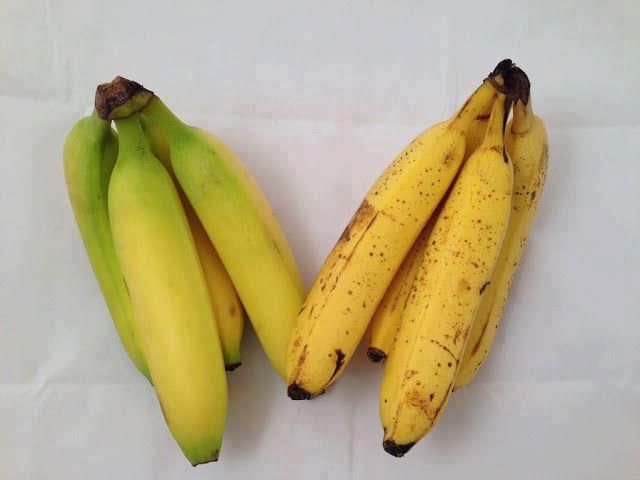Hit a Plateau? 8 Ways to Get Things Moving Again

A weight loss plateau can zap your motivation, but understanding the reasons behind it can help you meet your goals. According to Susan Bowerman, MS, RD, CSSD, "When you cut back on your calories, your body reacts as if there's no more food coming its way. So it does what it's programmed to do — it hangs onto stored up calories by slowing down the rate at which you burn them."
Further, as your weight drops, your metabolic rate naturally goes down a bit, too. "That means as you lose weight, your calorie needs also drop somewhat. So, to keep losing at the same rate, you need to either cut your intake further, or exercise more — or accept that your rate of weight loss will be slower as you approach your goal."
From an exercise perspective, you may be pushing yourself harder and harder but the results seem to be slowing.
"Pushing your body to the point of exhaustion can spell disaster for your fitness goals. You've got to build in time for your body to recharge," states former Olympian Samantha Clayton, Herbalife's director, worldwide fitness education. "Then when you start training again, you've got a renewed energy and focus."
Here are tips to move off the plateau:
- Use a food diary to keep track of your calorie intake - You may have been more careful when you started your diet — weighing and measuring everything that passed your lips — but you might not be as accurate as you once were. This will get you back on track.
- Replace two meals a day with a protein shake to help you stay within your calorie limit. When you make your shake, you know exactly what goes into it — and how many calories are in the protein powder, the milk and the fruit — so it takes the guesswork out of calorie counting. Use the shake for two meals a day, have a healthy third meal, and fill in with snacks of low fat protein foods, veggies and fruits.
- Dine out less often - No matter how careful you think you are when you go to a restaurant, it's usually difficult to accurately estimate how many calories you're eating, because it's often hard to tell exactly how foods are prepared.
- Step up your activity, particularly strength training - If you've been working out for a while and haven't increased the intensity of your activity, you might not be burning as many calories as you used to. Add some new moves to your exercise routine, increase the intensity, and pump some iron.
- You might actually be at the right weight - If you can, get your body composition checked. Muscle is ‘denser' and takes up less space than body fat — so if you are carrying more muscle than the average person, you might weigh more than you think you should. If your body fat is within normal range, then you may not have much — if any — additional weight to lose.
- Avoid fatigue - Your body needs to re-generate, restore and repair itself often. Your pain receptors will make movements uncomfortable and your joints can become tender when you push your body too hard. The nervous system also needs time to rest in order to adapt and improve from training.
- Follow your natural cycle - Athletes train in cycles for a reason, the timing of training may vary from athlete to athlete but one common factor in every athlete's training program are pre-planned rest days. A well-rested body will get better results than a tired one.
- Spark excitement - If you are putting your body through the motions day after day, you can become complacent and your exercise intensity is likely to drop without you even realizing. Taking a day or two off from your current workout routine can make you come back to the gym with a renewed commitment and excited approach.
Posted by Lydia Messika Bosnino on Thursday 18 April 2013
Six Weeks, Six Pounds: Six Tips To Help You Shape Up For Summer

Dreading swimsuit season? The days are getting longer and the weather is warming up — which means you can't hide under that heavy winter clothing for much longer. With about six weeks to go before the start of summer, now is the time to get started. Last minute efforts often mean a lot of sacrifice and little payoff — but if you start now, there's still time to safely shed some of that extra winter padding.
"The threat of a warmer climate and skimpier clothing sends people into a ‘get slim quick' frenzy," says Samantha Clayton, director, fitness education at global nutrition company, Herbalife. "But trying to lose more than one or two pounds a week isn't advisable, or safe," she adds. A two-pronged approach of diet and exercise is the way to get results. But if you haven't worked out for a while, you'll want to take it slow and steady. "If you jump into a fitness routine that's too difficult, you're unlikely to sustain it," Clayton says.
The same holds true for diet. "Many people are in such a hurry to drop weight that they cut their calories too far," notes Susan Bowerman, MS, RD. "Not only can they not keep up with such a strict plan," she adds, "they just don't have the energy to get through their day, not to mention trying to get through a strenuous workout."
Clayton and Bowerman agree that with careful attention to ‘calories in — calories out,' most people should be able to lose about a pound a week. Here are six of their best tips to help you look your best when summer arrives:
- Start right away. Wishing and daydreaming about having a perfect body in time for summer is not going to get you any closer to your goal. So get started today. If it's been a while since you've been active, a simple walk or bike ride is a perfect place to start.
- Prioritize the changes you want to make. Then, tackle the easier ones first. If skipping breakfast is your problem, make a point to start the day with a healthy, protein-rich meal that will keep hunger away until lunch. Try some cottage cheese or yogurt with fruit; maybe a protein shake made with milk, protein powder and fresh fruit; or a simple egg white omelet.
- Take it slow and steady. Jumping into a fitness routine that is too difficult often backfires. If you take on too much, too soon, the resulting sore muscles — or even injury - may derail your plans. Aiming for 30 minutes of activity a day is a great starting point.
- Have a plan. In order for your body to change, your workout must change as you adapt to your new increased activity. As you get fitter and your workout seems easier, you can increase your intensity or duration to push your body to improve.
- Resist the temptation to weigh too often. Weight can fluctuate, so jumping on the scale every day may not be the best indicator of your progress. Rather than focusing on weight loss, pay attention to your other achievements — the ease of lifting more weights, improvements in your diet, or the inches you're losing around your waistline.
- Keep a log to stay motivated. Keeping track of what you eat and how much exercise you get is one of the key components to successful weight loss. And do it every day. Write it all down honestly, and give yourself a pat on the back when you're good. But don't beat yourself up when you're not. Tomorrow is another day.
Bowerman is a registered dietician and paid consultant for Herbalife.
Posted by Lydia Messika Bosnino on Wednesday 17 April 2013
Great Banana Info for you 'A BANANA a day keeps the doctor away!'

Bananas contain three natural sugars - sucrose, fructose and glucose combined with fiber. A banana gives an instant, sustained and substantial boost of energy. Research has proven that just two bananas provide enough energy for a strenuous 90-minute workout. No wonder the banana is the number one fruit with the world's leading athletes. But energy isn't the only way a banana can help us keep fit. It can also help overcome or prevent a substantial number of illnesses and conditions, making it a must to add to our daily diet.
DEPRESSION: According to a recent survey undertaken by MIND amongst people suffering from depression, many felt much better after eating a banana. This is because bananas contain tryptophan, a type of protein that the body converts into serotonin, known to make you relax, improve your mood and generally make you feel happier.
PMS: Forget the pills - eat a banana. The vitamin B6 it contains regulates blood glucose levels, which can affect your mood. ANEMIA: High in iron, bananas can stimulate the production of hemoglobin in the blood and so helps in cases of anemia.
BLOOD PRESSURE: This unique tropical fruit is extremely high in potassium yet low in salt, making it perfect to beat blood pressure So much so, the US Food and Drug Administration has just allowed the banana industry to make official claims for the fruit's ability to reduce the risk of blood pressure and stroke.
BRAIN POWER: 200 students at a Twickenham school ( England ) were helped through their exams this year by eating bananas at breakfast, break, and lunch in a bid to boost their brain power. Research has shown that the potassium-packed fruit can assist learning by making pupils more alert.
CONSTIPATION: High in fiber, including bananas in the diet can help restore normal bowel action, helping to overcome the problem without resorting to laxatives.
HANGOVERS: One of the quickest ways of curing a hangover is to make a banana milkshake, sweetened with honey. The banana calms the stomach and, with the help of the honey, builds up depleted blood sugar levels, while the milk soothes and re-hydrates your system.
HEARTBURN: Bananas have a natural antacid effect in the body, so if you suffer from heartburn, try eating a banana for soothing relief.
MORNING SICKNESS: Snacking on bananas between meals helps to keep blood sugar levels up and avoid morning sickness.
MOSQUITO BITES: Before reaching for the insect bite cream, try rubbing the affected area with the inside of a banana skin. Many people find it amazingly successful at reducing swelling and irritation.
NERVES: Bananas are high in B vitamins that help calm the nervous system.. Overweight and at work? Studies at the Institute of Psychology in Austria found pressure at work leads to gorging on comfort food like chocolate and chips. Looking at 5,000 hospital patients, researchers found the most obese were more likely to be in high-pressure jobs. The report concluded that, to avoid panic-induced food cravings, we need to control our blood sugar levels by snacking on high carbohydrate foods every two hours to keep levels steady. ULCERS: The banana is used as the dietary food against intestinal disorders because of its soft texture and smoothness. It is the only raw fruit that can be eaten without distress in over-chroniclercases. It also neutralizes over-acidity and reduces irritation by coating the lining of the stomach.
TEMPERATURE CONTROL: Many other cultures see bananas as a 'cooling' fruit that can lower both the physical and emotional temperature of expectant mothers. In Thailand, for example, pregnant women eat bananas to ensure their baby is born with a cool temperature. So, a banana really is a natural remedy for many ills. When you compare it to an apple, it has FOUR TIMES the protein, TWICE the carbohydrate, THREE TIMES the phosphorus, five times the vitamin A and iron, and twice the other vitamins and minerals.. It is also rich in potassium and is one of the best value foods around , so maybe its time to change that well-known phrase so that we say, 'A BANANA a day keeps the doctor away!'
Posted by Lydia Messika Bosnino on Monday 15 April 2013
Herbalife Promotes New Nutrition And Fitness Experts

Herbalife announced today that it has promoted Rocio Medina, M.D. as vice president, nutrition training, and Samantha Clayton, to the newly-created position of director, worldwide fitness education.
Having served on the company's Nutrition Advisory Board since 2007, Medina will now lead Herbalife's global nutrition training with an increased focus on education for Herbalife independent distributors on the principles of nutrition and living a healthy, active lifestyle.
Medina was a professor of nutrition and obesity at the University of Monterrey in Mexico, where she designed a series of courses specializing in these areas. Along with her colleagues, she also founded the Medical College of Surgeons and Professionals in Obesity and Clinical Nutrition at Nuevo León in 2000, where she served as president from 2009 to 2010. Additionally, Medina is a member of the National Association for the Study of Obesity, since 2004. Previously, she served as medical coordinator for the Ministry of the Preventive Police Force of Monterrey.
Medina received her medical degree at the Autonomous University of Nuevo Leon (Universidad Autónoma de Nuevo Leon), in Monterrey, Mexico; two nutrition and obesity post-degrees at the Autonomous University of Nuevo Leon and the University of Monterrey (1999-2001); and her specialization training in nutrition and obesity from University of Monterrey (2010).
Clayton will manage activities relating to exercise and fitness education for Herbalife independent Distributors and employees. She will also create, organize, and promote employee fitness programs and activities to align with the company's corporate wellness program.
A native of Liverpool England, Clayton worked as a consultant to the company for the last two years and led the 24-Fit program, Herbalife's first comprehensive fitness training program and DVD series. In 2000 she represented England in the 2000 Sydney Olympics in both the 200m race and the 4x100m relay. Prior to the Olympics, she won two medals in the Olympic AAA trials; a silver medal for the 200m and a bronze for the 100m as well as a silver medal in the 4x100m relay during the European Junior Championships. Her personal records include an 11.40 in the 100m and 23.02 in the 200m. Clayton is a personal trainer and group exercise coach through the American Fitness and Aerobics Association (AFAA) and International Sport Science Association (ISSA).
Posted by Lydia Messika Bosnino on Thursday 4 April 2013
Treat your Body the healthy way!
Treat your body to a healthy, balanced meal in no time! Not only are these shakes easy to make, they’re also delicious. With up to 20 essential vitamins, minerals and nutrients – and in seven flavors – weight management never tasted so good!
Posted by Lydia Messika Bosnino on Monday 1 April 2013





